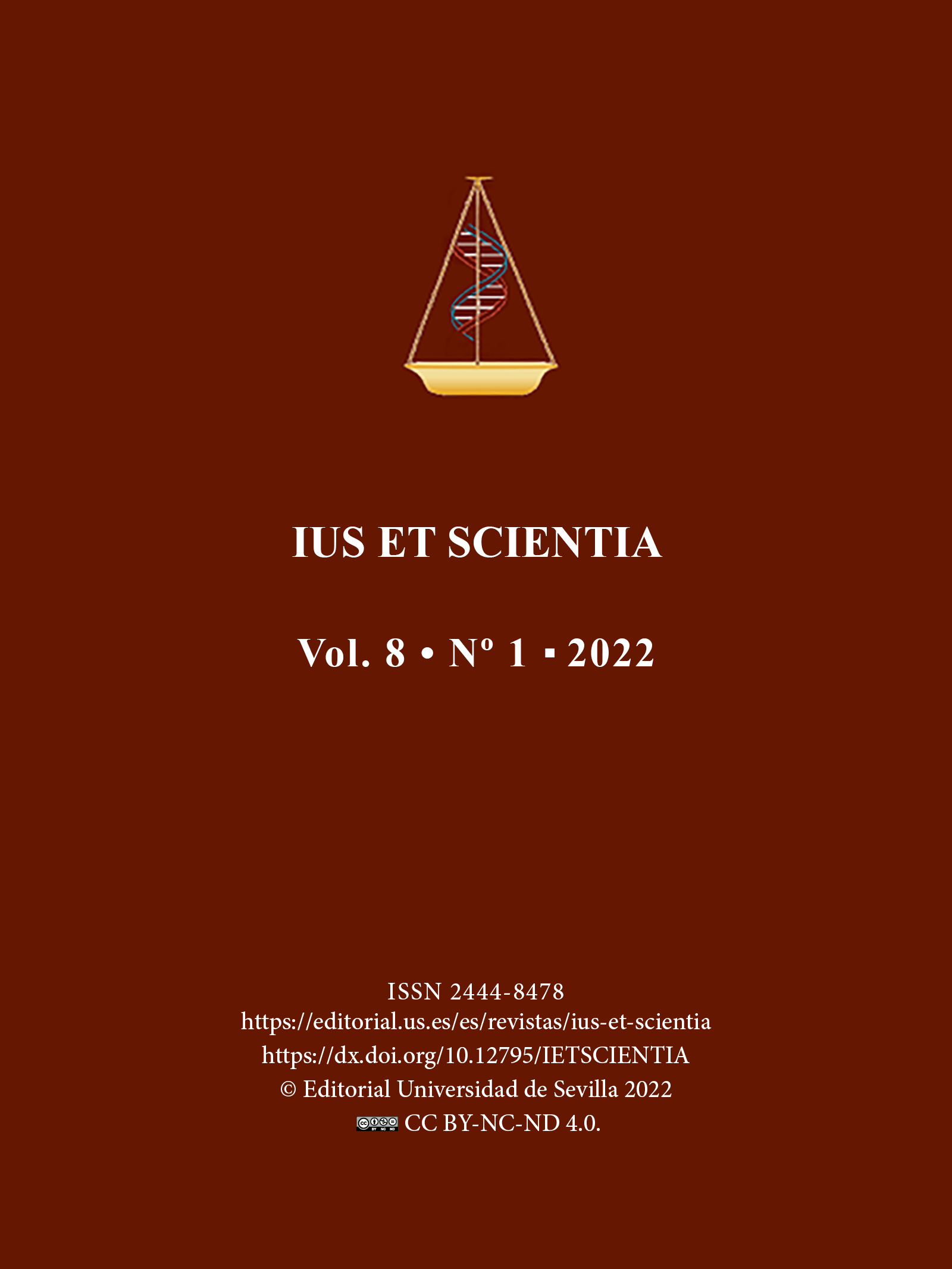Human rights and artificial intelligence
DOI:
https://doi.org/10.12795/IETSCIENTIA.2022.i01.10Keywords:
Artificial intelligence, Ethics, Human rightsAbstract
Artificial intelligence (AI) can have a positive impact on the exercise of certain rights, but others can be undermined by its use such as: freedom of expression (including the right to freely communicate or receive information), privacy, the prohibition of discrimination, and the right to effective judicial protection. International organizations dedicated to the protection of human rights are currently reflecting on these risks and possible solutions to help their member states respond to these challenges, as well as the actions carried out in the universal framework by the United Nations and at the European level by the Council of Europe and the European Union.
Artificial Intelligence is an extremely powerful and necessary tool to help us address the immense challenges we must overcome as a species. But if when developing it we ignore social, labor and ethical factors, Artificial Intelligence can become a weapon in favor of inequality, control and destruction.
Downloads
References
Nikken, P. (1994). El Concepto de Derechos Humanos, Estudios Básicos de Derechos Humanos, IIDH, San José.
Brooks R. A., (2003).Cuerpos y máquinas, de los robots humanos a los hombres robots, trad. De Guillermo Solana, Barcelona: Ediciones B.
Steels, L., (1994). The Artificial Life Roots of Artificial Intelligence, en Artificial Life.
Hunt, E (2016). Tay, Microsoft’s AI chatbot, gets a crash course in racism from Twitter.
Bellosos Martín, N. (2018). La necesaria presencia de la ética en la robótica: La roboética y su in-cidenica en los derechos humanos. Cuadernos de Programa de Pós-Gradyaçã. Vol. 13, nº. 2.
Pérez Orozco, B (2017). Entrevista con Brent Mittelstadt.
-https://www.foroconsultivo.org.mx/INCyTU/documentos/Completa/INCYTU_18-012.pdf-
Meetings of the Expert Group on Business-to-Government Data Sharing, Digital Single Market, (2019).https://ec.europa.eu/digital-single-market/en/news/meetings-expert-group-businessgovernment-data-sharing
OECD, (2019). Recommendation of the Council on Artificial Intelligence. , Pub. L. No. OECD/LEGAL/0449 . https://legalinstruments.oecd.org/en/instruments/OECD-LEGAL-0449.
Human Rights Council, (2021). Annual report of the United Nations High Commissioner for Human Rights and reports of the Office of the High Commissioner and the Secretary-General https://www.ohchr.org/en/reports-secretary-general-and-high-commissioner-human-rights
Declaración de la Alta Comisionada sobre los riesgos de la inteligencia artificial para la privacidad en el Consejo de Europa, (2021). https://www.ohchr.org/es/press-releases/2021/09/artificial-intelligence-risks-privacy-demand-urgent-action-bachelet
Published
How to Cite
Issue
Section
License
Copyright (c) 2022 Andrea Elena Grigore

This work is licensed under a Creative Commons Attribution-NonCommercial-ShareAlike 4.0 International License.
Those authors being published in this journal agree to the following terms:
- Authors retain their copyright and they will guarantee to the journal the right of first publication of their work, which will be simultaneously subject to license recognition by Creative Commons that allows others to share such work provided it is stated the author’s name and his first publishing in IUS ET SCIENTIA.
- Authors may take other non-exclusive distribution license agreements version of the published work (e.g. deposit in an institutional digital file or publish it in a monographic volume) provided it is stated the initial publication in this journal.
- It is allowed and encouraged that Author s disseminate their work via the Internet (e. g. institutional digital files or on their website) prior to and during the submission process, which can lead to interesting exchanges and to increase citation of the published work.




